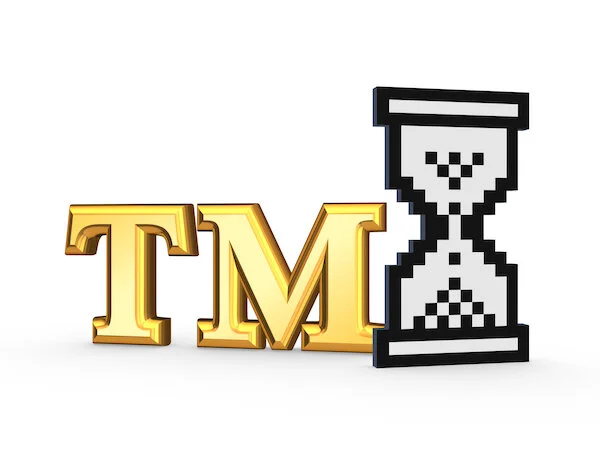Weekly IP Buzz for the Week Ending December 10, 2021
A summary of interesting developments in intellectual property, technology, social media, and Internet law for week ending December 10, 2021. Elements of selling an eCommerce based business.
In this week's post, we look at some unique challenges involved in the sale of eCommerce businesses include valuation, IP asset ownership, and key employees.
Selling an eCommerce Based Business
(This is Part 7 of a series covering core legal issues for eCommerce and Internet-based businesses.)
For a number of reasons, buying and selling a business presents many challenges, and each deal is unique. That said, most transactions involve many of the same features and elements.
A lot can happen in a transaction, from the initial discussions through the final closing. It is important that while both buyers and sellers remain flexible, they also ensure the final deal accomplishes their key goals. Transactions involving knowledge-based businesses have additional nuances that must be addressed, to ensure both parties benefit from the transaction. This article discusses some of the special issues presented in these types of deals.
All business acquisitions involve challenges for both buyers and sellers, but deals involving eCommerce businesses have some unique issues due to the nature of their operations and assets. Some unique challenges involved in the sale of eCommerce businesses include valuation, IP Asset ownership, and key employees.
Read the full article here.
For more posts, see our Ideate blog for the latest news and insights into law, business, and culture.
--------
In addition to publishing Thriving Attorney, Darin M. Klemchuk is founder of Klemchuk LLP, a litigation, intellectual property, and transactional law firm located in Dallas, Texas. Click to read more about Darin Klemchuk's practice as an intellectual property lawyer. For more on the latest developments in IP law, see the blogs Ideate and IP Questions Answered.
Weekly IP Buzz for the Week Ending November 19, 2021
A summary of interesting developments in intellectual property, technology, social media, and Internet law for week ending November 19, 2021. New mobile app privacy requirements. Key role of human capital in eCommerce businesses.
In this week's post, we see that Apple and Google will introduce new privacy standards in their respective app stores that put stricter requirements on app developers that will come into effect in 2022.
Plus, eCommerce businesses should understand how “human capital” plays an important role in a successful online business and understand how legal agreements can best address requirements and expectations.
New App Privacy Standards to Be Required by Apple and Google
Earlier this summer, both Google and Apple announced that they would implement new changes to their respective app stores to set new app privacy standards and requirements to protect consumers. This means that, beginning in 2022, the Apple App Store and the Google Play Store will have heightened privacy standards.
For Apple and its App Store, Apple will now require that all mobile apps that pass through the App Store allow users to create accounts to enable deletion of their user accounts from within the app. Google, on the other hand, will require mobile app developers to complete a Google Data Safety form when submitting their mobile apps to the Google Play Store. The information provided by the app developers will be available to users that download the app if they choose to view the information in a new "Data Safety" section that Google will implement in the Google Play Store in 2022.
Read about why privacy proponents are excited about these new steps.
Human Capital in eCommerce and Internet-Based Businesses
(This is Part 6 of a series covering core legal issues for eCommerce and Internet-based businesses.)
Even in a technology-based business, a significant amount of enterprise value is created by and relies upon the creativity, energy, and efforts of people.
People serve as managers and executives, developers and creatives, marketing a sale, operations, fulfillment, installation, as well as repair and tech support. These people produce content, create and implement business strategies, and manage operations for eCommerce businesses. In doing so, they may be creating liabilities, sharing secrets, poaching clients, or doing all number of things – intentionally, as well as unintentionally – that can create liability or cause harm to ecommerce businesses.
So, even though people are often critical to the success of an eCommerce business, relationships between the eCommerce business and these people must be defined and covered by clear and enforceable legal agreements.
Read more here.
For more posts, see our Ideate blog for the latest news and insights into law, business, and culture.
--------
In addition to publishing Thriving Attorney, Darin M. Klemchuk is founder of Klemchuk LLP, a litigation, intellectual property, and transactional law firm located in Dallas, Texas. Click to read more about Darin Klemchuk's practice as an intellectual property lawyer. For more on the latest developments in IP law, see the blogs Ideate and IP Questions Answered.
Weekly IP Buzz for the Week Ending September 3, 2021
A summary of interesting developments in intellectual property, technology, social media, and Internet law for week ending September 3, 2021. eCommerce law and internet-based businesses. Patent cases and assignor estoppel limits.
In this week's post, we see how Internet business opportunities come with legal risks and challenges that must be identified and addressed if eCommerce businesses hope to survive and thrive.
Plus, in Minerva Surgical, Inc. v. Hologic, Inc, the Supreme Court further defined limitations on assignor estoppel in patent cases, that companies should be aware of.
eCommerce Law for Internet-Based Businesses
This is Part 1 of a series covering core legal issues for eCommerce and Internet-based businesses.
The tremendous opportunities generated by the Internet for eCommerce businesses also generate just as many risks.
At their core, an eCommerce business is substantially similar to more traditional businesses. They have a legal structure (such as an LLC or corporation), need financial and human assets, and must comply with a host of laws and regulations.
However, the nature of the operations, structure, and assets of an eCommerce business pose unique legal challenges.
Find more here.
Assignor Estoppel in Patent Law: Important Limitations Defined
The Supreme Court recently issued a ruling on Minerva Surgical, Inc. v. Hologic, Inc. further defining the boundaries of a patent law doctrine, assignor estoppel. The doctrine of assignor estoppel states that an inventor who assigns the rights in their patent to a company may not later in litigation argue that the patent is invalid. In the act of assigning, the patent the inventor is making explicit or implicit warranties that the patent is valid and so to later argue the contrary, would be unfair and inequitable.
Read the full article here.
Click to read the previous Weekly IP Buzz on Thriving Attorney.
For more posts, see our Ideate blog for the latest news and insights into law, business, and culture.
--------
In addition to publishing Thriving Attorney, Darin M. Klemchuk is founder of Klemchuk LLP, a litigation, intellectual property, and transactional law firm located in Dallas, Texas. Click to read more about Darin Klemchuk's practice as an intellectual property lawyer. For more on the latest developments in IP law, see the blogs Ideate and IP Questions Answered.
Weekly IP Buzz for the Week Ending August 27, 2021
A summary of interesting developments in intellectual property, technology, social media, and Internet law for week ending August 27, 2021. Nike taking stand against customization art by enforcing intellectual property rights.
In this week's post, we see that Nike has been aggressive in enforcing its intellectual property rights, particularly its copyright and trademark rights when it comes to customization art.
Nike Sues Drip Creationz for Intellectual Property Infringement
Nike has begun to track down customers and companies and accusing them of infringement of its trademarks and copyrights for their customization art, namely, the customizing of Nike’s apparel, particularly its shoes.
There is a trend in which companies buy wholesale amounts of Nike shoes, customize them in-house, and then resell them on the Internet for a profit. The amount of customization on the shoes can vary from a simple re-coloring to complete deconstruction and reconstruction of the shoes with additional materials and changes.
As a result of Nike’s shoes being a target of customization art, Nike has been sending cease and desist letters to multiple online companies and brought suit against several others. One of Nike’s lawsuits against Drip Creationz has drawn significant attention as Drip Creationz is one of the best in customization art and has become a customer favorite. Consequently, this suit highlights the choices famous brands must make when determining whether to pursue infringement actions against niche companies and brands that can potentially result in a loss of goodwill in the eyes of its customers.
Read the full article here.
Click to read the previous Weekly IP Buzz on Thriving Attorney.
For more posts, see our Ideate blog for the latest news and insights into law, business, and culture.
--------
In addition to publishing Thriving Attorney, Darin M. Klemchuk is founder of Klemchuk LLP, a litigation, intellectual property, and transactional law firm located in Dallas, Texas. Click to read more about Darin Klemchuk's practice as an intellectual property lawyer. For more on the latest developments in IP law, see the blogs Ideate and IP Questions Answered.
Weekly IP Buzz for the Week Ending August 20, 2021
A summary of interesting developments in intellectual property, technology, social media, and Internet law for week ending August 20, 2021. Automating IP enforcement program through software tools.
In this week's post, we see that automating an IP enforcement program through software tools can both significantly decrease cost and help improve the program’s overall effectiveness.
Infringement of Intellectual Property Rights, Reducing Costs Through Automated IP Enforcement Programs
A recent study suggests that global infringement of intellectual property rights (excluding patent infringement) totaled over $2.2 trillion annually. Trademark and copyright counterfeiting alone are estimated to be over $500 billion annually in the U.S. These losses highlight the need for effective IP enforcement programs to protect U.S. businesses and their valuable brands.
This wide-spread infringement can be daunting to tackle. But automating an IP enforcement program through software tools can significantly decrease the cost while improving the overall effectiveness. Moreover, a well-designed program could be self-funding such that it is revenue neutral for a legal department and possibly a revenue generator.
Read more here, for key elements of an effective enforcement program.
Click to read the previous Weekly IP Buzz on Thriving Attorney.
For more posts, see our Ideate blog for the latest news and insights into law, business, and culture.
--------
In addition to publishing Thriving Attorney, Darin M. Klemchuk is founder of Klemchuk LLP, a litigation, intellectual property, and transactional law firm located in Dallas, Texas. Click to read more about Darin Klemchuk's practice as an intellectual property lawyer. For more on the latest developments in IP law, see the blogs Ideate and IP Questions Answered.
Weekly IP Buzz for the Week Ending August 13, 2021
A summary of interesting developments in intellectual property, technology, social media, and Internet law for week ending August 13, 2021. COPPA proposed changes. TRIPS IP waiver support from academics.
In this week's post, we see that U.S. Representative Kathy Castor introduced proposed updates to the Children’s Online Privacy Protection Act (“COPPA”).
Plus, with countries still in need of COVID-19 vaccination availability, academics are pleading for acceptance of the proposed IP waiver to help stop the pandemic through freedom to operate and lessening of TRIPS licensing restrictions.
Proposed Updates to COPPA
In July, Representative Kathy Castor has proposed widespread changes to the Children’s Online Privacy Protection Act (“COPPA”) by introducing updates to the “Protecting the Information of our Vulnerable Children and Youth Act” (“Kids PRIVCY Act”).
Perhaps, most significantly, the definition of “personal information” would newly include biometric, health, and education information. The definition would also be expanded to include physical characteristics, contents of messages and calls, and browser search history. It would also be expanded to include a new class to cover teenagers.
Read more here.
Academics Join in Support of TRIPPS Intellectual Property Waiver Proposed by India and South Africa
In a letter, more than 100 IP academics have spoken out in favor of a TRIPS Intellectual Property Waiver Proposal brought forth by India and South Africa. The United Kingdom, Australia, Brazil, Japan, Norway, Switzerland, and the European Union all currently oppose the proposal.
Find the full article here.
Click to read the previous Weekly IP Buzz on Thriving Attorney.
For more posts, see our Ideate blog for the latest news and insights into law, business, and culture.
--------
In addition to publishing Thriving Attorney, Darin M. Klemchuk is founder of Klemchuk LLP, a litigation, intellectual property, and transactional law firm located in Dallas, Texas. Click to read more about Darin Klemchuk's practice as an intellectual property lawyer. For more on the latest developments in IP law, see the blogs Ideate and IP Questions Answered.
Weekly IP Buzz for the Week Ending August 6, 2021
A summary of interesting developments in intellectual property, technology, social media, and Internet law for week ending August 6, 2021. Tiffany Costco trademark dispute.
In this week's post, we see that Tiffany & Co. and Costco Wholesale have ended an almost decades-long legal battle over the “Tiffany” trademark.
The Tiffany v. Costco Trademark Dispute Finally Settles
In July, Tiffany & Co. and Costco Wholesale settled an almost decade-long legal battle over the “Tiffany” trademark. The two companies had battled over claims of trademark infringement, trademark genericism, and counterfeit sales for years.
The lawsuit first came about when Tiffany & Co. found that Costco was selling rings under the Tiffany name. In response, Costco claimed that “Tiffany” had become a generic term and claimed it actually referred to the prong-setting of the rings.
When a defendant in a trademark infringement case claims genericism as a default, they are arguing that the term be invalidated as a federal trademark. In this case, it would allow any retailer to use the term “Tiffany” in connection with rings. For Tiffany & Co., this would mean the invalidation of a 184-year-old trademark and all the goodwill that has come to be associated with the brand.
Read the full article here.
Click to read the previous Weekly IP Buzz on Thriving Attorney.
For more posts, see our Ideate blog for the latest news and insights into law, business, and culture.
--------
In addition to publishing Thriving Attorney, Darin M. Klemchuk is founder of Klemchuk LLP, a litigation, intellectual property, and transactional law firm located in Dallas, Texas. Click to read more about Darin Klemchuk's practice as an intellectual property lawyer. For more on the latest developments in IP law, see the blogs Ideate and IP Questions Answered.
Weekly IP Buzz for the Week Ending July 30, 2021
A summary of interesting developments in intellectual property, technology, social media, and Internet law for week ending July 30, 2021. Texas Sex Trafficking Law.
In this week's post, we see that the Texas Supreme Court found Facebook can be sued by women who claimed it facilitated sex-trafficking rings that forced them into prostitution.
Courts Applying Texas Sex Trafficking Law Reject Facebook Safe Harbor Defense
The Texas Supreme Court has ruled that Facebook can be sued under a state legal action (Tex. Civ. Prac. & Rem. Code § 98.002) that punishes those that intentionally or knowingly benefit from sex trafficking. Using state law, but not federal law, three women that claim they were forced into prostitution by abusers that utilized Facebook were given the go-ahead to pursue their lawsuits against the technology giant under Texas law.
According to the lawsuit, Facebook failed to put in adequate safeguards that would protect potential victims and prevent sex traffickers from utilizing the social networking site to prey on the plethora of minors that use the site. Arguably, because Facebook continues to benefit from advertising profits off of its more than 2 billion users, the women claim that the company has done nothing to use its platform to speak out against the dangers of sex trafficking or prevent it, and as such, it intentionally or knowingly benefits from sex trafficking.
Read the full article here.
Click to read the previous Weekly IP Buzz on Thriving Attorney.
For more posts, see our Ideate blog for the latest news and insights into law, business, and culture.
--------
In addition to publishing Thriving Attorney, Darin M. Klemchuk is founder of Klemchuk LLP, a litigation, intellectual property, and transactional law firm located in Dallas, Texas. Click to read more about Darin Klemchuk's practice as an intellectual property lawyer. For more on the latest developments in IP law, see the blogs Ideate and IP Questions Answered.
Weekly IP Buzz for the Week Ending July 16, 2021
A summary of interesting developments in intellectual property, technology, social media, and Internet law for week ending July 16, 2021. IP Protocols.
In this week's post, we see that companies should audit their internal employment agreements on the heels of the global COVID-19 pandemic.
Updating IP Protocols in the Wake of COVID-19
The global COVID-19 pandemic forced many companies to adapt to shelter-in-place orders by allowing their employees to work remotely. In the haste to have workers get online as quickly as possible, many companies failed to implement proper protocols to protect their intellectual property as workers now had unfettered access to company databases and information.
As companies return to normal, many have found that their skilled workers are in high demand and are increasingly being lured away by competitors’ offers of employment. And as these workers leave, they often take with them valuable proprietary information in the form of client lists or marketing plans. As such, companies should consider the need to reevaluate the security and intellectual property protocols they have in place to protect against such occurrences.
For example, companies should audit their internal agreements and make sure that they have the proper non-compete, non-solicitation, and non-disclosure agreements in place.
Read more here.
Click to read the previous Weekly IP Buzz on Thriving Attorney.
For more posts, see our Ideate blog for the latest news and insights into law, business, and culture.
--------
In addition to publishing Thriving Attorney, Darin M. Klemchuk is founder of Klemchuk LLP, a litigation, intellectual property, and transactional law firm located in Dallas, Texas. Click to read more about Darin Klemchuk's practice as an intellectual property lawyer. For more on the latest developments in IP law, see the blogs Ideate and IP Questions Answered.
Weekly IP Buzz for the Week Ending July 9, 2021
A summary of interesting developments in intellectual property, technology, social media, and Internet law for week ending July 9, 2021. Surge in trademark applications.
In this week's post, we see that the U.S. Trademark Office is experiencing delays as applications grow by 60% since the beginning of 2021.
Expect Your U.S. Trademark Application to be Delayed by at Least Half a Year
The United States has slowly been reopening across the nation, and with it, the U.S. Patent and Trademark Office ("USPTO") has seen trying to catch up to the surge in intellectual property applications since the beginning of 2021. In fact, the U.S has reported an almost 60% increase in trademark application filings.
The surge in trademark applications at the U.S. Trademark Office have predominantly resulted from growth in e-commerce. Less explosive growth was experienced in entertainment sectors that saw significant growth in streaming services and expanded content offerings. For example, Disney has seen significant return in taking their Marvel Universe offerings to their streaming platform of Disney+. The success of shows like WandaVision and Loki were widespread enough that there were rumors that Disney had tried to trademark Loki, a god of Norse mythology, with petitions on Change.org receiving thousands of signatures to stop such an endeavor. (Disney eventually released a statement that they had no intentions of trademarking Loki.)
Read more here.
Click to read the previous Weekly IP Buzz on Thriving Attorney.
For more posts, see our Ideate blog for the latest news and insights into law, business, and culture.
--------
In addition to publishing Thriving Attorney, Darin M. Klemchuk is founder of Klemchuk LLP, a litigation, intellectual property, and transactional law firm located in Dallas, Texas. Click to read more about Darin Klemchuk's practice as an intellectual property lawyer. For more on the latest developments in IP law, see the blogs Ideate and IP Questions Answered.
Weekly IP Buzz for the Week Ending July 2, 2021
A summary of interesting developments in intellectual property, technology, social media, and Internet law for week ending July 2, 2021. CFAA narrow reading redefines “authorized access” in computer fraud cases.
In this week's post, we see that the Supreme Court redefined the reach of the Computer Fraud and Abuse Act by narrowing the scope of “unauthorized access.”
Supreme Court Narrows Reach of Computer Fraud and Abuse Act
Ignoring partisan lines, the Supreme Court voted to narrow the reach of the Computer Fraud and Abuse Act (“CFAA”) this month in Van Buren v. United States. The 1986 American technology law has long been the cornerstone of cybersecurity prosecution, but the High Court significantly narrowed the scope of the CFAA by redefining what “authorized access” means.
The CFAA makes it illegal for a person to access a computer without authorization and provides both criminal and civil penalties for such violations. Until the recent Supreme Court decision, the key CFAA language, “intentionally accesses a computer without authorization or exceeds authorized access,” had been interpreted broadly by some courts to mean that the CFAA would apply to a person who had authorized access but exceeded their authorization to access such information.
Read more here.
Click to read the previous Weekly IP Buzz on Thriving Attorney.
For more posts, see our Ideate blog for the latest news and insights into law, business, and culture.
--------
In addition to publishing Thriving Attorney, Darin M. Klemchuk is founder of Klemchuk LLP, a litigation, intellectual property, and transactional law firm located in Dallas, Texas. Click to read more about Darin Klemchuk's practice as an intellectual property lawyer. For more on the latest developments in IP law, see the blogs Ideate and IP Questions Answered.
Weekly IP Buzz for the Week Ending June 25, 2021
A summary of interesting developments in intellectual property, technology, social media, and Internet law for week ending June 25, 2021. Competitor contracts keyword bidding.
In this week's post, we see that the Second Circuit overturned the FTC’s decision to pursue litigation against 1-800 Contacts over its trademark agreements with its competitors.
Second Circuit Overturns FTC on Trademark Issues
The Second Circuit made headlines earlier this month by overturning a Federal Trade Commission (“FTC”) decision to pursue litigation over trademark agreements made between 1-800 Contacts and thirteen of its competitors.
At issue were agreements that 1-800 Contacts had made with thirteen of its competitors over how to deal with the trademarks of 1-800 Contacts when it came to online advertising and search engine auctions. Specifically, 1-800 Contacts and its competitors contracted to set guidelines that limited the competitors of 1-800 Contacts from bidding on trademarks in such auctions while simultaneously requiring these same competitors to bid on negative keywords. Such bidding would effectively prevent the ads of the competitors from being displayed when consumers searched for 1-800 Contacts on popular search engines.
Read the full article here.
Click to read the previous Weekly IP Buzz on Thriving Attorney.
For more posts, see our Ideate blog for the latest news and insights into law, business, and culture.
--------
In addition to publishing Thriving Attorney, Darin M. Klemchuk is founder of Klemchuk LLP, a litigation, intellectual property, and transactional law firm located in Dallas, Texas. Click to read more about Darin Klemchuk's practice as an intellectual property lawyer. For more on the latest developments in IP law, see the blogs Ideate and IP Questions Answered.
Weekly IP Buzz for the Week Ending June 18, 2021
A summary of interesting developments in intellectual property, technology, social media, and Internet law for week ending June 18, 2021. Music industry and ALI Copyright Restatement vote. Patent Pilot Program ending.
In this week's post, we see that the American Law Institute (ALI) recently voted on a new restatement of copyright law, which has music creators up in arms.
Plus, as the Patent Pilot Programs comes to an end, patent litigators will face uncertainty as new judges unfamiliar with patents will now hear patent cases.
New ALI Copyright Restatement Vote Stirred Musician Opposition
The American Law Institute (“ALI”) recently voted on a restatement of copyright law, which has music creators up in arms. The ALI, which is an organization that compiles and publishes books that cover a variety of legal issues, generally known as the “Restatements of Law,” is best known for creating guides that both summarize important court decisions and laws in the United States.
ALI Restatements are often cited in legal works, court decisions, and briefs, and many subject-specific guides are required reading in law schools. With ALI Restatements being so influential, it is no surprise that music creators wrote an open letter to ALI, urging members to vote against the newest copyright restatement. Music creators have banded together, arguing that the new restatement will erode the rights of music creators.
Find the full article here.
End of Patent Pilot Program Means Judges With No Patent Experience Will Now Hear Patent Cases
On June 9, 2021, Chief Judge Lynn of the Northern District of Texas issued an order vacating Special Order 3-287, issued July 26, 2011, that established procedures for assigning patent cases filed under the Patent Pilot Program. This order comes as the Pilot Program is set to end on July 4, 2021.
The Patent Pilot Program was passed by Congress in 2011 to try and help educate judges about patents and allow them to become more familiar with patent cases. The program allowed federal judges to opt into the program. Judges who opted in would have the patent cases in their district split between just judges who opted in rather than the full complement of judges.
Read more here.
Click to read the previous Weekly IP Buzz on Thriving Attorney.
For more posts, see our Ideate blog for the latest news and insights into law, business, and culture.
--------
In addition to publishing Thriving Attorney, Darin M. Klemchuk is founder of Klemchuk LLP, a litigation, intellectual property, and transactional law firm located in Dallas, Texas. Click to read more about Darin Klemchuk's practice as an intellectual property lawyer. For more on the latest developments in IP law, see the blogs Ideate and IP Questions Answered.
Weekly IP Buzz for the Week Ending June 11, 2021
A summary of interesting developments in intellectual property, technology, social media, and Internet law for week ending June 11, 2021. Supreme Court to rule on copyright invalidation in Unicolors v. H&M case.
In this week's post, we see that the Supreme Court is to hear copyright invalidation case between H&M and Unicolors over copyright infringement.
Supreme Court Tries on a Fashionable Case Between H&M and Unicolors
Clothing giant H&M and fabric-maker Unicolors have been locked in litigation since April 2016. Now, the United States Supreme Court has agreed to hear the case between them, which revolves around copyright infringement.
In the case at hand, Unicolors claimed that H&M infringed upon its copyright registration for certain geometric patterns. In response, H&M argued that Unicolors’ copyright registration is invalid because Unicolors included false information in its application. Specifically, while Unicolors had stated on its copyright application that its individual geometric patterns were published together, which would make them appropriate for a “single-unit” copyright registration, H&M argued that this was untrue because Unicolors had actually sold some of the registered patterns separately and to different customers at different times. With this revelation, H&M argued that the infringement claim would fail because a valid copyright registration is a prerequisite for any copyright infringement claim brought in the United States.
Read the key takeaways and full article here.
Click to read the previous Weekly IP Buzz on Thriving Attorney.
For more posts, see our Ideate blog for the latest news and insights into law, business, and culture.
--------
In addition to publishing Thriving Attorney, Darin M. Klemchuk is founder of Klemchuk LLP, a litigation, intellectual property, and transactional law firm located in Dallas, Texas. Click to read more about Darin Klemchuk's practice as an intellectual property lawyer. For more on the latest developments in IP law, see the blogs Ideate and IP Questions Answered.
Weekly IP Buzz for the Week Ending June 4, 2021
A summary of interesting developments in intellectual property, technology, social media, and Internet law for week ending June 4, 2021. Pitching signals as trade secrets.
In this week's post, we see that Major League Baseball pitcher Michael Bolsinger filed a trade secret lawsuit against the Houston Astros over allegedly stolen pitching signals.
Pitching Signs as Trade Secrets? Let’s Play Ball!
Former Major League Baseball pitcher and McKinney, Texas native Michael Bolsinger has been making waves in legal news as he filed an intellectual property lawsuit against the Houston Astros for trade secret misappropriation.
Bolsinger had previously filed suit in California for unfair business practices but had those claims dismissed for lack of jurisdiction. Now, Bolsinger has filed claims in Harris County District Court against the Houston Astros over allegations that they stole his pitching signs.
Read the full article here.
Click to read the previous Weekly IP Buzz on Thriving Attorney.
For more posts, see our Ideate blog for the latest news and insights into law, business, and culture.
--------
In addition to publishing Thriving Attorney, Darin M. Klemchuk is founder of Klemchuk LLP, a litigation, intellectual property, and transactional law firm located in Dallas, Texas. Click to read more about Darin Klemchuk's practice as an intellectual property lawyer. For more on the latest developments in IP law, see the blogs Ideate and IP Questions Answered.
Weekly IP Buzz for the Week Ending May 28, 2021
A summary of interesting developments in intellectual property, technology, social media, and Internet law for week ending May 28, 2021. Tenant Data Privacy Act. AI and FRS technology concerns.
In this week's post, we see that New York has a new law to address how biometric data is collected and used by landlords in the new Tenant Data Privacy Act.
Plus, there is a concern with the development of both AI and FRS technology in how data has historically been collected to create the technology, with unauthorized use of private data, unintentional biases, and the threat of fraud and potential for criminal actions.
New York City Law Addresses Biometrics and Keyless-Entry Data Privacy
The New York City Council has drafted a landmark resolution, the Tenant Data Privacy Act, that would require that multiple-household dwellings provide tenants with privacy policies and specific safeguards if the dwellings use biometric identifiers in combination with keyless entries.
The Tenant Data Privacy Act marks a significant milestone in the fight for data privacy in that the new city resolution would not only require landlords to provide tenants with notice and information about the specific data that may be collected about them via keyless entry, but the proposed law would also place restrictions and limit what type of data may ultimately be collected. Landlords would also be required to obtain consent from their tenants.
Read the full article here.
Artificial Intelligence and Facial Recognition Software – Technological Wonder or Brave New World? Or Both?
Your phone and tablet recognize your face or thumbprint, and Google and other search engines have become more efficient and their searches more comprehensive and complete. For most of us, the advancement and evolution of artificial intelligence (“AI”) and facial recognition software (“FRS”) have provided a perception of increased efficiency and, even more importantly, security. But is the perception of greater security reality?
Find the full article here.
Click to read the previous Weekly IP Buzz on Thriving Attorney.
For more posts, see our Ideate blog for the latest news and insights into law, business, and culture.
--------
In addition to publishing Thriving Attorney, Darin M. Klemchuk is founder of Klemchuk LLP, a litigation, intellectual property, and transactional law firm located in Dallas, Texas. Click to read more about Darin Klemchuk's practice as an intellectual property lawyer. For more on the latest developments in IP law, see the blogs Ideate and IP Questions Answered.
Weekly IP Buzz for the Week Ending May 21, 2021
A summary of interesting developments in intellectual property, technology, social media, and Internet law for week ending May 21, 2021. USPTO ex parte appeal brief resources.
In this week's post, we see that the USPTO released new resources to help guide inventors and attorneys through drafting ex parte appeal briefs.
The USPTO Presents New Appeal Brief Resources
The US Patent and Trademark Office has released new resources for filing an Ex Parte Appeal brief. An appeal brief may be filed during prosecution of a patent application, on claims that have been rejected twice, or claims that have had a final rejection. By filing an appeal brief, the appellant is asking the Patent Trial and Appeal Board (PTAB) to review the case.
Appeal briefs are not common in a lot of cases, so pro se inventors or attorneys who have never gotten to this point may be unfamiliar with the process. The new resources released are targeted at these people and designed to help them draft their first appeal brief to the PTAB.
Read the full article here.
Click to read the previous Weekly IP Buzz on Thriving Attorney.
For more posts, see our Ideate blog for the latest news and insights into law, business, and culture.
--------
In addition to publishing Thriving Attorney, Darin M. Klemchuk is founder of Klemchuk LLP, a litigation, intellectual property, and transactional law firm located in Dallas, Texas. Click to read more about Darin Klemchuk's practice as an intellectual property lawyer. For more on the latest developments in IP law, see the blogs Ideate and IP Questions Answered.
Weekly IP Buzz for the Week Ending May 14, 2021
A summary of interesting developments in intellectual property, technology, social media, and Internet law for week ending May 14, 2021. IoT hackers.
In this week's post, we see that, as IoT is increasingly used in businesses, learning how to secure IoT devices from hackers is important.
Does Your Company Know How to Secure Its IoT Devices?
As the Internet of Things (“IoT”) has made itself increasingly relevant across all industries, smart devices have become especially common in the workplace. As a result, privacy experts across the nation have noted a steep rise in cyberattacks on IoT devices as more and more smart devices are being used in industries that are relatively new to using IoT connectivity.
Every day IoT is utilized in new and exciting ways. Whether it is a new industry finally “coming online” with IoT or an already established IoT industry finding a new channel to utilize the technology, it is clear that IoT is here to stay. As we have often blogged, IoT refers to the Internet of Things, which is technology that now allows for smart devices to stay “online” indefinitely while being able to receive, track, and send data wirelessly. These devices can be used to monitor everything from a patient’s blood glucose levels to a satellite’s uptime. While an industry’s need for IoT devices may vary, the use of IoT devices is steadily increasing across the board. For example, IoT devices have become incredibly popular in healthcare. Just earlier this year, one health system in southwest Missouri disclosed that they extensively use more than 17,000 IoT-connected devices in the day-to-day management of their services.
But as IoT technology becomes more widely accepted, it has also become a more high-profile target for hackers. Such a problem is compounded by the fact that there are so many different manufacturers of IoT devices as so many companies want to cash in on IoT’s popularity. This makes it harder to ensure that consumer devices have adequate protection in place against hackers and cyberattacks.
Read the full article here.
Click to read the previous Weekly IP Buzz on Thriving Attorney.
For more posts, see our Ideate blog for the latest news and insights into law, business, and culture.
--------
In addition to publishing Thriving Attorney, Darin M. Klemchuk is founder of Klemchuk LLP, a litigation, intellectual property, and transactional law firm located in Dallas, Texas. Click to read more about Darin Klemchuk's practice as an intellectual property lawyer. For more on the latest developments in IP law, see the blogs Ideate and IP Questions Answered.
Weekly IP Buzz for the Week Ending May 7, 2021
A summary of interesting developments in intellectual property, technology, social media, and Internet law for week ending May 7, 2021. New state privacy laws in Florida and Virginia.
In this week's post, we see that Virginia and Florida lead the way when it comes to new state privacy law efforts in 2021.
Virginia and Florida Lead the Way in State Privacy Laws in 2021
New state privacy laws in Florida and Virginia will be modeled after GDPR and CCPA
A full three years after the passage of the California Consumer Privacy Act of 2018, more state legislatures have finally begun to work on their respective versions of privacy laws. Currently, as of 2021, Virginia and Florida lead the way by authoring their own legislative acts that address consumer privacy.
Virginia and Florida’s proposed privacy laws, slated for 2023 and 2022 respectively, model themselves after the California Consumer Privacy Act (“CCPA”) and the European Union’s General Data Protection Regulation (“GDPR”), signaling that Virginia and Florida are both willing to take a stricter stance on consumer privacy than the protections that currently exist at the federal level. Both state laws will apply to companies conducting business within their respective state borders or businesses that process or control the personal data of a significant number of state residents.
Read the full article here.
Click to read the previous Weekly IP Buzz on Thriving Attorney.
For more posts, see our Ideate blog for the latest news and insights into law, business, and culture.
--------
In addition to publishing Thriving Attorney, Darin M. Klemchuk is founder of Klemchuk LLP, a litigation, intellectual property, and transactional law firm located in Dallas, Texas. Click to read more about Darin Klemchuk's practice as an intellectual property lawyer. For more on the latest developments in IP law, see the blogs Ideate and IP Questions Answered.
Weekly IP Buzz for the Week Ending April 30, 2021
A summary of interesting developments in intellectual property, technology, social media, and Internet law for week ending April 30, 2021. IoT in gambling.
In this week's post, we see that IoT has found its way into another field, specifically online gaming and traditional casinos.
You Wanna Bet? IoT Finds Its Way Into Online Gambling and Traditional Casinos
With each new day, the Internet of Things and IoT-capable smart devices have found themselves being used in a new field. This time, the use of IoT technology has expanded to the field of online gambling and traditional casinos.
For those that are unfamiliar with IoT, IoT refers to the “Internet of Things.” IoT describes a network of both virtual and physical things. IoT-enabled devices are generally referred to as “smart” devices, which means that they can receive and upload data to the cloud at all times. IoT-enabled devices may vary in how “smart” they are, but these devices generally all share the same objective of either supporting a common ecosystem (such as a smart house) or sending information about a particular user. As such, IoT-enabled devices have the potential to collect and share a veritable goldmine of data and analytics on any particular user.
And now the gambling sector has found itself increasingly availing itself of IoT-enabled devices’ uses. For example, the implementation of IoT devices and capabilities have allowed casinos to reach a bigger audience and provide more of its services around the clock.
Read the full article here.
Click to read the previous Weekly IP Buzz on Thriving Attorney.
For more posts, see our Ideate blog for the latest news and insights into law, business, and culture.
--------
In addition to publishing Thriving Attorney, Darin M. Klemchuk is founder of Klemchuk LLP, a litigation, intellectual property, and transactional law firm located in Dallas, Texas. Click to read more about Darin Klemchuk's practice as an intellectual property lawyer. For more on the latest developments in IP law, see the blogs Ideate and IP Questions Answered.


























